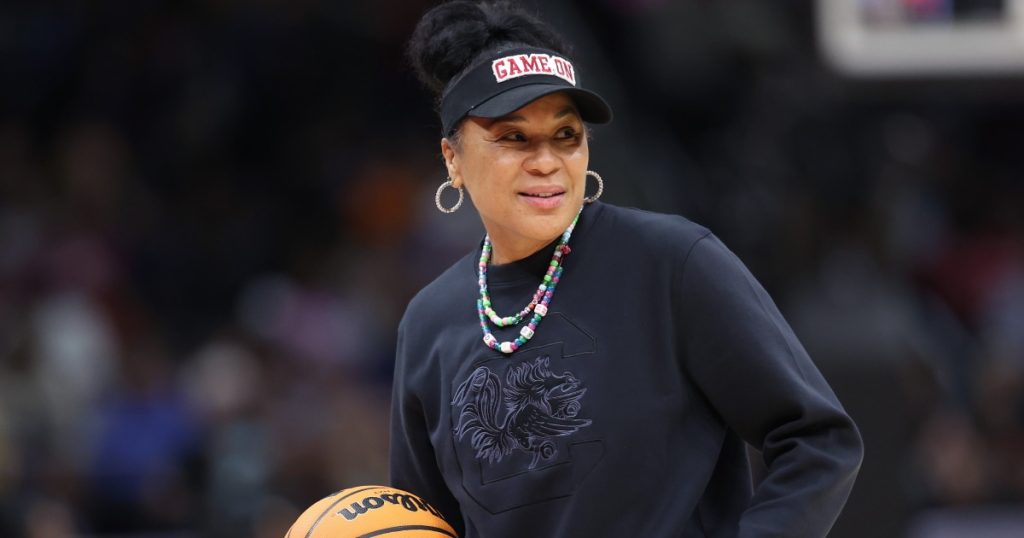South Carolina women’s basketball coach Dawn Staley expressed her belief that transgender athletes should be allowed to compete in women’s sports during a news conference ahead of her team’s NCAA Tournament championship game. Staley stated that if someone identifies as a woman and wants to play sports, they should be able to do so. The topic of transgender athletes in sports has become a hot-button issue, with only a small number of transgender athletes openly competing in college sports as of 2023. Some opponents argue that transgender athletes assigned male at birth have an advantage over cisgender women, leading to legal battles like the recent lawsuit against the NCAA by college swimmers and volleyball players.
During the news conference, Staley’s comments were in contrast to Iowa coach Lisa Bluder, who declined to answer the same question, citing a focus on the upcoming game. While the topic of transgender athletes in sports has gained attention, it remains a divisive issue with various state legislatures implementing bans on trans athletes participating in K-12 and collegiate sports teams. The Biden administration has proposed measures to prevent such bans, highlighting the ongoing debate and legal challenges faced by transgender athletes.
The controversy surrounding transgender athletes in sports intensified recently when transgender swimmer Lia Thomas became the first openly transgender athlete to win an NCAA swimming championship, sparking legal action and debates over fairness in competition. At least 20 states have passed laws banning transgender athletes from participating in girls’ sports teams, causing further division and legal battles across the country. Staley acknowledged the potential backlash from her comments but expressed her willingness to address the issue and stand by her beliefs.
Despite the challenges and controversies surrounding transgender athletes in sports, Staley’s comments reflect a growing acceptance and advocacy for inclusivity in women’s sports. As the debate continues to unfold, with legal battles, legislation, and activism shaping the future of transgender athletes’ rights in sports, voices like Staley’s provide a platform for discussion and reflection on the intersection of gender identity and athletics. The inclusion of transgender athletes in women’s sports poses important questions about fairness, equality, and representation, challenging traditional norms and advocating for a more inclusive and diverse sporting environment.













